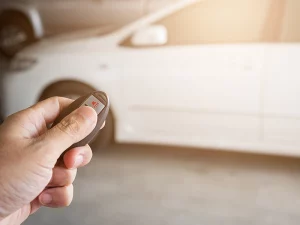Why Property Managers Should Rethink Their Locking Systems
Managing multiple units or buildings is a demanding task. You’re juggling tenant concerns, maintenance schedules, and building security. In buildings with traditional locks, carrying a separate key for every door becomes a hassle. Therefore, more property managers are switching to master key systems. They’re not just convenient; they also streamline access and improve control.
In other words, a locksmith Ottawa can help you design a system where one master key simplifies access across the entire property. This setup helps you stay organized while reducing the need to keep track of dozens of keys.
What Is a Master Key System?
A master key system is a lock setup that allows different levels of key access. Each door has its own key, but there’s a master key that can open all of them. In larger setups, you can also introduce sub-master keys that work on specific groups of doors. For example, cleaning staff might have a sub-master for common areas, while maintenance crews access utility rooms.
The main benefit is simplicity. You no longer need a ring of twenty keys just to do a quick walkthrough of your property. Instead, one key unlocks multiple points of access. As a result, you spend less time fumbling through keys and more time solving problems.
How a Master Key System Works in Practice
Let’s say you oversee a four-story building with twelve units and three utility closets. With a standard setup, you’d have at least fifteen different keys. But with a master key system, each tenant still uses their individual key, while your single master key opens everything.
You can also add flexibility to this system. For instance, if a plumbing contractor only needs access to mechanical rooms, you can assign a key that works on those doors alone. Meanwhile, your own key still opens every lock in the building. That level of access control can reduce the risk of unauthorized entry.
To explore how commercial properties in your area use this kind of setup, take a look at commercial locksmith Ottawa. These systems are widely used in office buildings, apartment complexes, and schools.
When to Install a Master Key System
Master key systems are most helpful when you’re overseeing multiple access points. Therefore, they’re a smart choice for property managers who handle apartment buildings, medical offices, retail complexes, and storage facilities.
You might also consider upgrading to this system when:
- Keys are being lost frequently
- Turnover between tenants is high
- You’re outsourcing cleaning or maintenance work
- You’re expanding and adding more units
- Your current system is inconsistent or outdated
During transitions like renovations or unit upgrades, having a centralized access system saves time. Likewise, it makes emergency access easier when tenants are away.
Security Considerations
While the convenience is clear, some people worry that a single key opens too many doors. That concern is valid. However, a properly installed system minimizes risk with strict key control and strong cylinder technology. You can even request restricted keys that cannot be duplicated without authorization.
More importantly, key logs become easier to maintain. You know exactly who has access to which parts of the property. In addition, you can rekey one section without disrupting access elsewhere. If a maintenance staff member leaves, you can revoke their key access without changing locks for every tenant.
Master Key System Layouts: Simple to Complex
There’s no one-size-fits-all approach. Some buildings need a basic system with a master and a few individual keys. Others require more advanced structures, such as:
- Great Grand Master Key: Opens everything in a multi-site portfolio
- Grand Master Key: Works across multiple buildings or sections
- Master Key: Opens all doors on one property
- Change Key: Opens a single door
You can scale up or down depending on your needs. For instance, if you manage both a high-rise and a townhouse row, the system can accommodate separate access for each site with one central master key.
Best Practices for Managing a Master Key System
Installing a master key system is just the start. To keep it working efficiently and securely, follow a few best practices:
- Maintain an accurate key log: Track who has which keys and update it regularly
- Use numbered keys, not labeled ones: Avoid giving away which key opens what
- Set strict duplication policies: Limit who can request a new key
- Store master keys securely: Never keep them in unlocked areas
- Audit the system annually: Ensure the access structure still fits your property layout
Furthermore, always notify tenants of your access rights and responsibilities. That is to say, while you hold a master key, you still must respect privacy laws and entry notice rules.
Comparing Keyed Access with Smart Systems
With technology evolving, many property managers wonder if they should skip master keys entirely and go straight to digital locks. That might work in some settings, but mechanical master key systems still offer some key benefits.
Firstly, they do not rely on electricity or Wi-Fi, which means they work during power outages. Secondly, they’re less expensive to install in large buildings with dozens of doors. And thirdly, they’re familiar. Tenants know how to use them without needing an app or code.
However, if you’re leaning toward keyless entry, some hybrid systems combine digital readers with traditional keys. You can always upgrade later while still keeping your core system intact.
Cost and Installation Time
The cost of installing a master key system varies based on how many locks you have and how complex the structure needs to be. Simpler systems may be installed in a day, while larger buildings could take a bit longer.
What matters most is that you work with a technician who can design the system with future growth in mind. Changing keys or adding a new section should be easy, not a hassle. Therefore, plan ahead and ask questions about scalability during the setup phase.
Real-World Tip: Stagger Your Rekeying
If you already manage a building with dozens of locks, converting everything at once can be disruptive. Instead, consider rekeying in phases. Begin with common areas and maintenance closets. Then, move on to individual units as leases turn over.
This approach lets you spread the cost out and adapt gradually. It also gives you time to test the master key setup in practice before applying it to every space. Over time, you’ll likely find that both tenants and staff appreciate the added convenience.
How to Know If a Master Key System Is Right for You
Ask yourself a few quick questions:
- Do I carry more than five keys regularly?
- Have I had to unlock a tenant’s door in the last six months?
- Do different vendors or staff need access to different parts of my property?
- Have I had to rekey more than once this year?
If you answered yes to two or more of these, switching to a master key system will likely save you time and improve your overall access control. While no system is perfect, this one simplifies your job without overcomplicating daily tasks.
FAQs
What happens if I lose a master key?
You should rekey the affected locks immediately. A lost master key poses a serious risk, so always have a backup and store it securely.
Can tenants duplicate their keys?
Not if you use restricted keyways. These keys require special blanks that are only available to authorized locksmiths.
How many keys can be part of one system?
Dozens or even hundreds of keys can be integrated, depending on your property size and needs.
Is it possible to upgrade an existing lock system to a master key setup?
Yes, many existing locks can be rekeyed to fit a master structure without replacing hardware.
Are digital locks better than master key systems?
It depends on your goals. Master key systems are reliable and low-maintenance, while digital systems offer remote access and logging features. You can also combine both for added flexibility.



